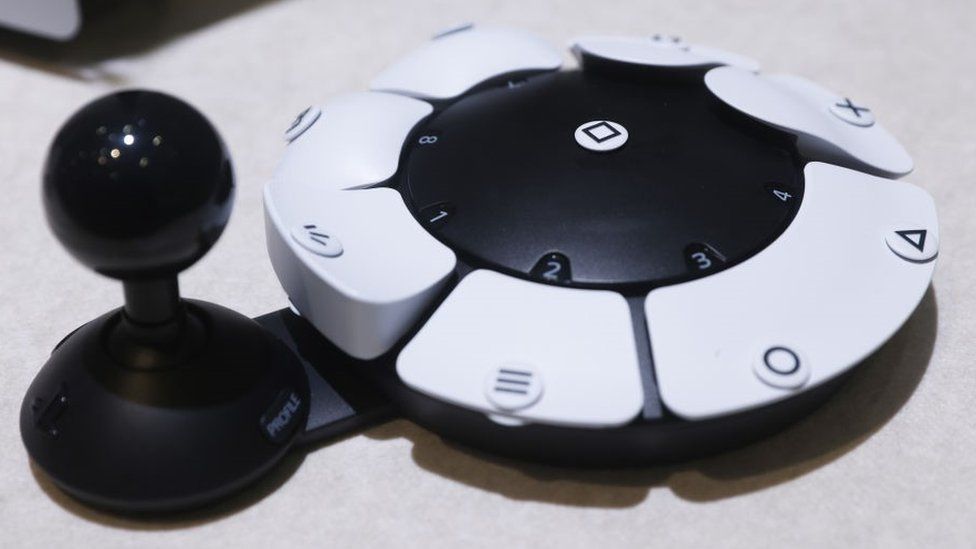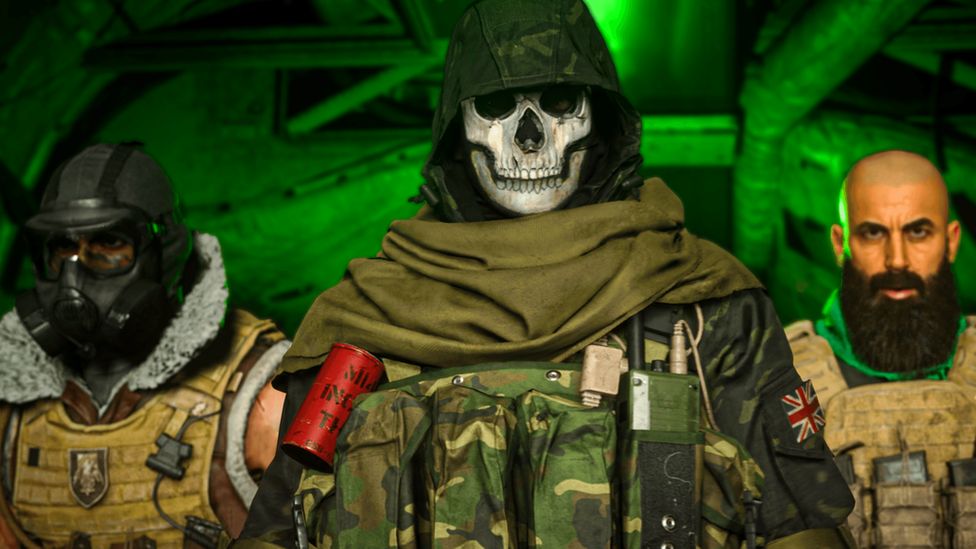Xbox, Nintendo or PlayStation: does it still matter?


My son’s favourite game is Minecraft.
He plays it wherever he can. On his phone, on his tablet, on our PlayStation, on his dad’s Xbox. He watches Minecraft videos on YouTube and he uses an unofficial app to create and share skins and mods.
He doesn’t care who owns the game (Microsoft bought the Mojang studio in 2014) and he has no brand loyalty to a particular device – his favourite is whichever one is to hand.
He’s 12 years old and this is what the games giants are up against: a generation of young gamers who don’t buy into their hype.
Tonight, Microsoft published an update which suggests it is starting, very cautiously, to respond to that.
Four video games – and the firm was frustratingly careful not to name them – will be opened up to alternative platforms for the first time, Xbox boss Phil Spencer said.
He gave a couple of clues: they are all community-driven, more than one year old, and they do not include Starfield or Indiana Jones.
This feels like a change of gear for Microsoft, which has long favoured exclusivity to its own Xbox platform and Games Pass subscription service.
During its contentious acquisition of the massive games maker Activision Blizzard, one of the chief objections of its rival Sony was that it could make smash hits like Call of Duty, played by millions on PlayStations, Xbox-exclusives. Microsoft was forced to promise that it would not do so for at least 10 years.
Tonight Mr Spencer insisted the four latest games did not signify a fundamental change in the firm’s games strategy.
But then he added: “I have a fundamental belief that in the next five to 10 years, exclusive games, which are exclusive to one piece of hardware, are going to be a smaller and smaller part of the games industry.”
And it’s not just Xbox warming to the idea – there have been similar rumblings from Sony. In a recent earnings call, interim gaming president Hiroki Totoki said that he wanted to put more PlayStation games onto other platforms.
But much like Microsoft, he did not name any particular games, or any particular platforms. It is possible he meant the firm would continue with the status quo of putting PlayStation games onto PC several months or even years after their release.
Nintendo meanwhile, has more of a tendency to keep its games to itself.
The idea of basically turning any device with a screen into your company’s console is blisteringly simple, when you think about it. Why go through the expensive and time-consuming process of building and selling proprietary hardware when so many people are essentially carrying around a high-performance computer already, in the form of their phones?
Why restrict access to your best-selling titles when there’s a vast audience with alternative devices out there who also want to buy them, play them, and pay for in-game extras?
The analysts Ampere estimated that in 2023 there were a total of around 46.5m consoles sold, of which only 7.6m were Microsoft’s Xbox. That leaves nearly 39 million gamers that Xbox exclusives such as the long awaited Starfield from Bethesda, didn’t reach.
You begin to see that this is an old-fashioned business model, with an old-fashioned motive: money.
“The key reason Microsoft has been pursuing a more progressive multi-platform strategy with its games content and services since early in the Xbox One cycle is because it was unable to build on the relative success of the Xbox 360 era and take market share from Sony, and latterly, Nintendo post-the launch of the Switch,” says analyst Piers Harding-Rolls from Ampere.
In addition Microsoft has been busy hoovering up successful games studios for large amounts of cash – at a time when making games is already an expensive business.
There has been some speculation that Microsoft might be preparing to walk away from the hardware market altogether, abandoning the Xbox console entirely, but Mr Harding-Rolls doesn’t think something that dramatic is on the horizon.
“Ampere does not expect Microsoft to exit the console platform business in the medium term as that would leave a gaping hole in its games-related revenues,” he added.
Indeed, Xbox president Sarah Bond even teased the idea of some brand new hardware in a podcast released by Microsoft on Thursday.
“What we’re really focused on there is delivering the largest technical leap you will have ever seen in a hardware generation,” she said.
Unfortunately, your guess about that at this stage is as good as ours, although the rumour mill is going into overdrive that it could be some kind of handheld device, designed to compete with the huge success of the Nintendo Switch.
In any case Darren Edwards from gaming news website TheXboxHub sums it up neatly: “It’s hardly a doomsday scenario for Xbox.”
As for the games themselves, Microsoft’s preferred gateway is via Games Pass. For £12.99 per month, it offers unlimited streaming access to hundreds of titles.
The firm has been very quiet for a while about subscriber numbers, but tonight revealed it had hit 34m. It launched in 2017 with an ambition to hit 100m by 2030, a goal that still feels some way off, with six years to go.
But it’s still good news for those making games which are on the Games Pass, like the UK-based publisher No More Robots.
“We want as many people on Game Pass as possible, because that naturally leads to more people playing our titles, which is especially useful for multiplayer titles that require larger player counts to keep the community alive,” said director Mike Rose.
Needless to say there are also a lot of relieved Xbox owners on social media right now. Many felt the announcement was an anti-climax after days of anticipation, and it certainly threw up more questions than answers. But at least the message was more business as usual than console bonfire.
One gamer on X summed up the most popular view: “Xbox isn’t going away or going 3rd party. Can we all chill now?”
Related Topics
-
-
6 December 2023

-
-
-
12 October 2022

-

